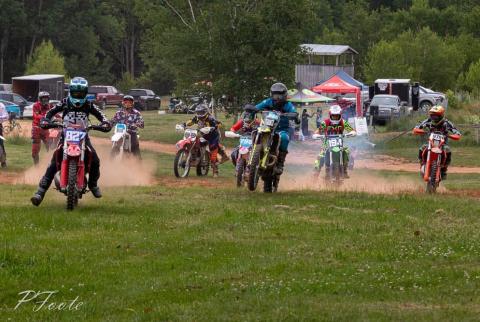Code of Conduct
The future of riding opportunities depends on YOU! Protect your right to ride. Respect the land, the wildlife, and the rights of others. The NSORRA promotes safe, responsible riding and expects its members to maintain the following standards:
- Be legal. Obey posted speed limits and set an example by complying with all equipment and licensing requirements. Be quiet, safe and respectful when passing near or through residential areas – particularly when riding in groups. Do not draw undue negative attention to yourself. Make sure your bike is quiet, loud bikes are not welcome on any ride.
- Use open routes. Respect trail, road, and area closures. Stay off land marked private.
- Leave no trace. Stay off trails when your use will leave ruts and impact the trail tread, such as during very wet or dry conditions. Roosting creates ruts, erodes soil, and increases maintenance. Cutting donuts in the roads annoys other forest visitors and makes all dual sporters/off-road riders look like “hot doggers.” Pack out at least as much as you pack in.
- Always yield trails to other users. Show your respect when meeting others by slowing down or stopping altogether. All roads are two-way, anticipate that other riders, cyclists or pedestrians may be around the next corner. Even brief inattention can cause disaster for you or others. Excessive speed threatens other users. Always stop to offer assistance to fallen or broken down riders.
- Never spook horses, cattle, or wildlife. All animals are startled by an unannounced approach, a sudden movement, or a loud noise. Give animals extra room and time to adjust to you. In passing, follow the directions of horseback riders (ask if uncertain).
- Educate others. Those who break the rules and don’t ride legally are threatening YOUR riding opportunities. We need your help. Talk to them and educate them, they will listen to you as a fellow rider. Lead by example!
- Plan ahead. Know your equipment, your ability, current conditions, and prepare accordingly. Be self-sufficient, keep your equipment in good repair, and carry necessary supplies for changes in the weather or other conditions. A well-executed trip is a satisfaction to you and not a burden or offence to others. Inform someone of your planned route and arrival time. If possible, do not ride alone.
- Do not ride above your ability! Ensure that your bike is not too large or powerful for you to control. When first learning to ride off-road, stay close to home/assistance until your ability increases sufficiently. Get some instruction or ask a fellow rider for some tutoring, if you are having difficulty getting started.
- Have fun!

